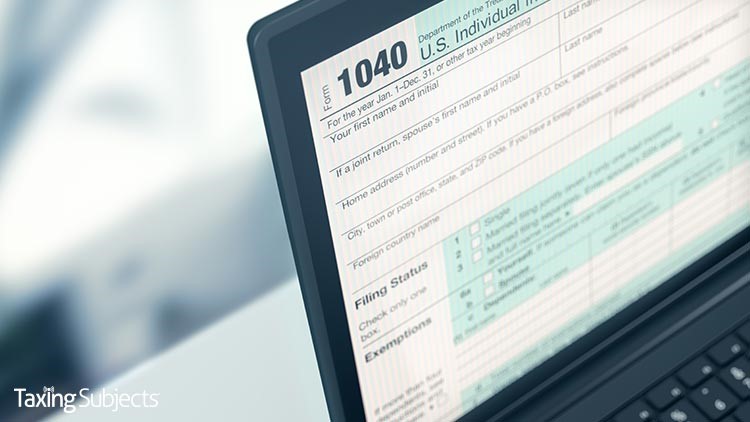
Filing season is finally here and for many tax professionals, the watchwords are speed and accuracy. The Internal Revenue Service says it can help with both.
The IRS is urging tax pros—and taxpayers—to take the simple steps needed to help ensure their returns are accurate, to speed up refunds and so avoid a number of pandemic-related pitfalls.
Their appeal isn’t new; every year the IRS encourages taxpayers to e-file their returns and to use direct deposit to get their refunds. But this year it’s extra-important to avoid delays.
By using their tax professional of choice, taxpayers can file electronically, safely and accurately. The IRS adds that paper-filed returns and paper checks will take even longer to process this year for a variety of reasons.
Now that filing has begun, taxpayers have until Thursday, April 15 to file their 2020 tax return and pay any tax due. The IRS expects to receive more than 160 million individual tax returns this year with nine out of 10 returns filed electronically. At least eight out of 10 taxpayers will get their refunds by direct deposit.
“The pandemic has created a variety of tax law changes and has created some unique circumstances for this filing season,” said IRS Commissioner Chuck Rettig. “To avoid issues, the IRS urges taxpayers to take some simple steps to help ensure they get their refund as quickly as possible, starting with filing electronically and using direct deposit.”
“Following months of hard work, we are ready to start this year’s tax season,” Rettig added. “Getting to this point is always a year-round effort for the IRS and the nation’s tax community. Doing it in a continuing COVID-19 environment while simultaneously delivering stimulus payments for the nation is an unprecedented accomplishment by IRS employees. I also want to thank all our tax partners and tax professionals for their hard work that makes tax time smoother for the nation. All of us stand ready to serve America’s taxpayers during this important filing season.”
Review tax changes to be tax-ready
Last year’s sweeping tax changes affected individual taxpayers and their families. But they also affect the tax returns they’re filing this year. A new IRS fact sheet explains what taxpayers need to know to file a complete and accurate tax return.
The IRS says it recognizes that filing this year could be challenging for some taxpayers, so it’s important to understand how to claim credits and deductions, to get a refund in a timely fashion and to meet all tax responsibilities.
Recovery Rebate Credit for those still eligible for Economic Impact Payments. Most people received Economic Impact Payments (EIPs) automatically, and anyone who got the maximum amount doesn’t need to include any information about the payments when they file.
However, those who didn’t get a payment—or only received a partial payment—may be eligible to claim the Recovery Rebate Credit when they file their 2020 tax return. Check out the guidelines for the credit for more information.
More language options available. This year marks the first time Forms 1040 and 1040-SR are available in Spanish. The IRS also now has a new form that allows taxpayers to request that they receive information from the agency in their preferred language. The Schedule LEP, Request for Change in Language Preference, allows taxpayers to request information in some 20 different languages besides English.
Don’t forget any retirement-plan distributions. Because of the pandemic, some taxpayers found it necessary to take early distributions from 401(k) plans and traditional IRAs in 2020.
Under the CARES Act, those distributions—up to $100,000—are not subject to the 10% additional tax that otherwise generally applies to distributions made before an individual reaches age 59 ½.
In addition, a coronavirus-related distribution can be included in income in equal installments over a three-year period, and an individual has three years to repay a coronavirus-related distribution to a plan or IRA and undo the tax consequences of the distribution.
Taxpayers should also note that they can make contributions to traditional IRAs until April 15, 2021, and still deduct that amount on their 2020 tax return, if eligible.
Deduction now allowed for charitable cash contributions. During a previous round of tax reform, deductions for contributions to charitable organizations went away for non-itemizers. That’s changed now, thanks to the CARES Act.
Taxpayers who don’t itemize can take a charitable deduction of up to $300 for cash contributions made in 2020 to qualified organizations. For this deduction, the qualifying organizations are limited to religious, charitable, educational, scientific or literary purposes.
As always, e-file is best. We’ve said it before: the safest and best way to file a complete and accurate tax return is to file electronically and use direct deposit. Both of these steps are where tax pros shine.
Most refunds are issued in less than 21 days, but some may take longer.
Refunds can be tracked by using Where’s My Refund? on IRS.gov or by downloading the IRS2Go mobile app. The app allows connected taxpayers to get a personalized refund date as soon as 24 hours after the return is submitted electronically.
For filers claiming the Earned Income Tax Credit or Additional Child Tax Credit, an update to Where’s My Refund? should show up by Feb. 22. Remember that the IRS cannot answer refund status questions unless it’s been 21 days since the return was e-filed.
Need more help?
IRS tax help is available 24 hours a day on IRS.gov, where people can find answers to tax questions and resolve tax issues online from the safety of their home. The Let Us Help You page helps answer most tax questions, and the IRS Services Guide links to other important IRS services.
For an in-depth perspective on how the IRS is preparing for a successful filing season, join Wage and Investment Commissioner and Chief Taxpayer Experience Officer Ken Corbin in his column, A Closer Look.
Source: IR-2021-35
